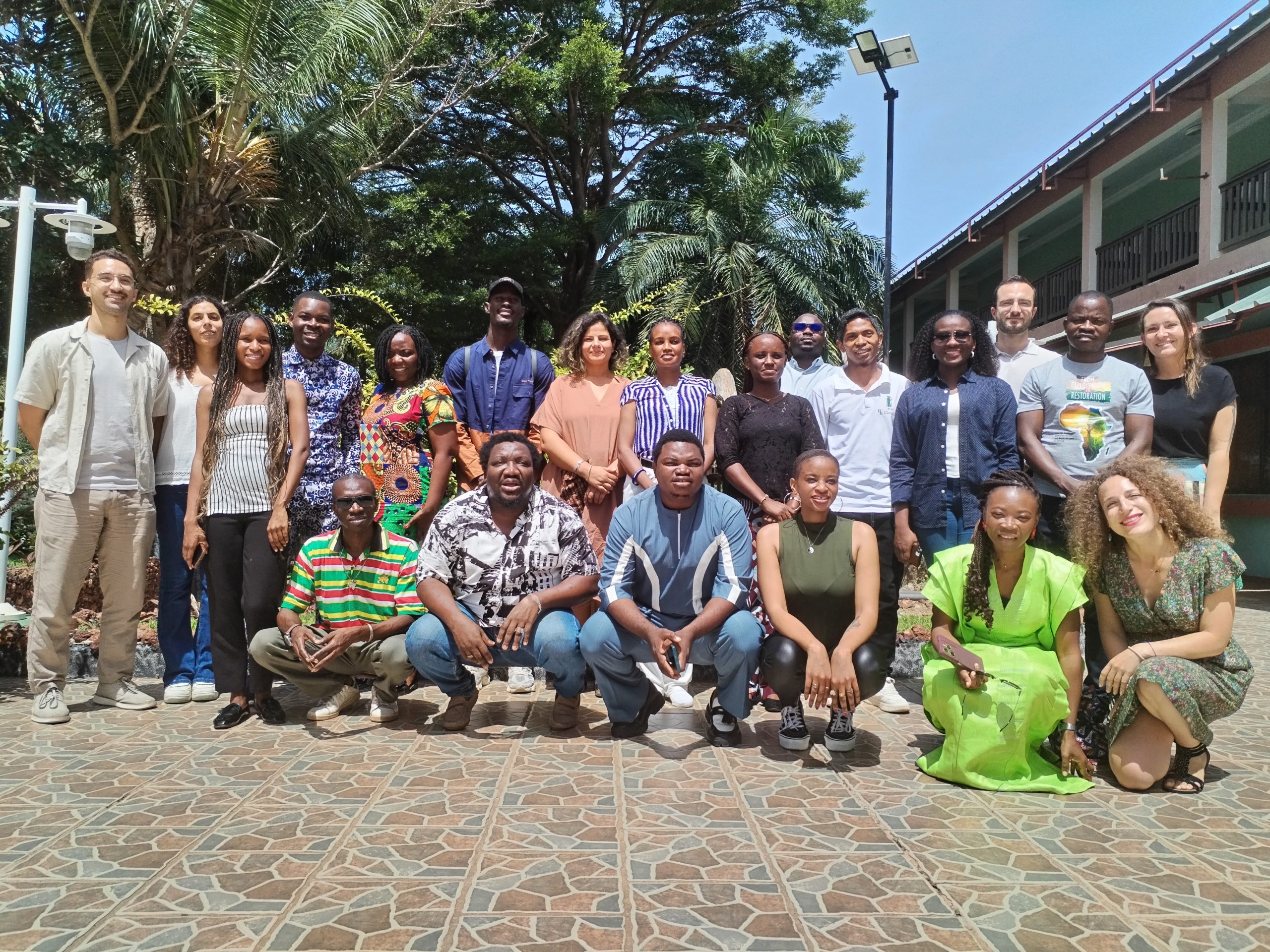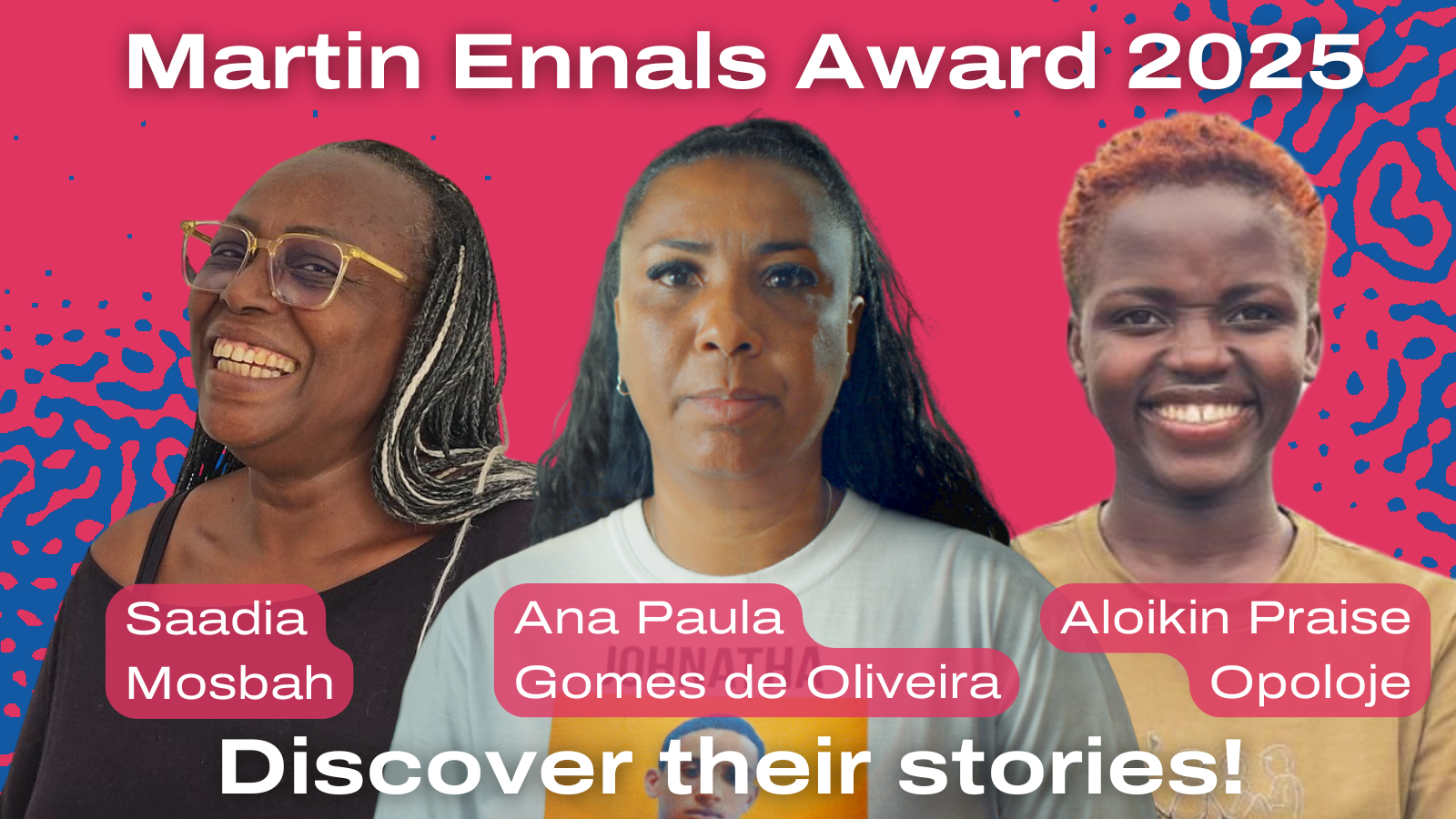Across the continent, human rights defenders play a vital role in achieving justice and a dignified life for everyone – whether they stand up for freedom of expression and association, keep governments accountable or fight for gender equality.
However, defenders continue to face severe challenges despite the numerous contributions they bring to societies: restrictions on their freedom of expression, assembly and association, criminalisation of their work, restrictions on NGO’s access to funds, and an increased number of attacks from governments across the continent. These pressures often intensify during election periods — with seven upcoming in Africa in 2025 — and amid ongoing disruptions to constitutional order in parts of the Sahel and West Africa.
The African Commission on Human and Peoples’ Rights (ACHPR) remains a crucial regional advocacy avenue for defenders. Established in 1981 under the African Charter on Human and Peoples’ Rights, it is mandated, among others, to promote and protect human rights through monitoring, documentation, expert engagement, and dialogue with States. Yet, the African Commission remains under-utilised by civil society, often due to limited awareness or difficulties in navigating its procedures.
To help bridge this gap, the ISHR and Front Line Defenders (FLD) launched a call for applications to train defenders on effective engagement with the ACHPR. This initiative built on discussions held during a side event at the 83rd Session of the African Commission last April, which introduced ISHR’s new online course on the African human rights system. The call attracted over 700 applications, from which – due to financial constraints – 16 defenders were selected.
The selected participants gathered in Banjul, The Gambia, for two and a half days of training, followed by three days of engagement at the NGO Forum organised by the African Centre for Democracy and Human Rights Studies, and participation in the 85th ACHPR session — creating a holistic and impactful experience. They came from a wide range of countries, including Benin, Côte d’Ivoire, the Democratic Republic of Congo, Kenya, Madagascar, Nigeria, Rwanda, Senegal, South Africa, Togo, Tunisia, Uganda, Zambia, and Zimbabwe, and several others that need to remain anonymous.
The defenders’ advocacy work spans women’s rights, the rights of LGBTIQ+ people, environmental justice, anti-trafficking, civic space protection, housing rights, and the defence of human rights defenders. Many are leading figures within their respective national movements.
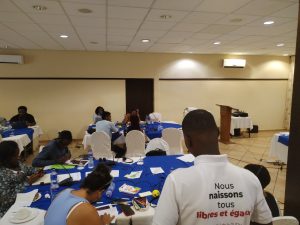
© ISHR, FLD
During the training, participants exchanged experiences and good practices, while deepening their understanding of the ACHPR’s main mechanisms — including the State Reporting and Shadow Reporting processes, Communications procedures, and Special Mechanisms.
They met with ACHPR staff and engaged in meaningful discussions with Commissioners Hatem Essaiem and Remy Ngoy Lumbu. Gambian journalist and prominent human rights defender Fabakary Ceesay also shared his story as an activist in exile, describing how the ACHPR played a role in documenting his case and others under the former regime.
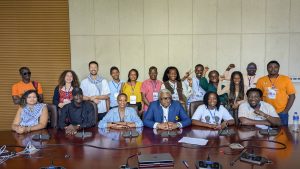
© ISHR, FLD
A key component of the training focused on security and protection — both online and offline — with expert input from FLD specialists on preventing and responding to reprisals.
Through scenario-based exercises, participants developed advocacy pitches, which they later used at the NGO Forum and ACHPR session, networking with regional actors and contributing to discussions on this year’s African Union theme: ‘Justice for Africans and People of African Descent through Reparations’. Each one of them were attributed with ‘missions challenges’ during the Forum, from asking questions during the panels to discuss with at least 5 new NGOs!
Three participants also took part also took part as speakers in official side events, amplifying their advocacy on national and regional issues:
- Claver Touré (Alternatives Côte d’Ivoire) spoke of the role of family in Africa and the implications of legal reforms on individual freedoms.
- Idah Muli, Kenyan survivor leader and founder of Arise and Thrive Africa, shared insights on victims’ experiences at an event on enforced disappearances and reparations.
- Christopher Opio (Uganda) highlighted corporate accountability in environmental rights during a panel on enforced disappearances, land, and natural resources, as part of the UN Working Group’s groundbreaking study launch.
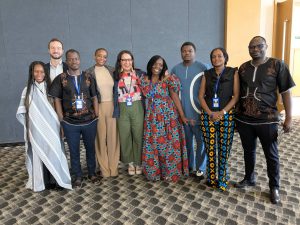
© ISHR
All participants also engaged in consultations with UN Working Group on Enforced and Involuntary Disappearances experts Ana Lorena Delgadillo Pérez and Aua Baldé, Chair of the Group.
More than just a training, this experience fostered a strong network of solidarity among defenders and inspired sustained engagement with the ACHPR.
ISHR and FLD are committed to continuing their support for these activists as they strengthen their advocacy both at home and in future Commission sessions.
Want to learn more about the ACHPR?
Explore our free e-learning course on the ISHR Academy!


